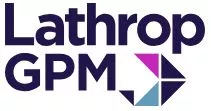On December 18, 2024, the EEOC issued guidance entitled Helping Patients Deal with Pregnancy – and Childbirth – related Limitations and Restrictions at Work Under the Pregnant Workers Fairness Act. The guidance, according to the EEOC, "addresses the role of health care providers in helping a patient to obtain accommodations" under the PWFA, which applies to employers with 15 or more employees and took effect in June of 2023.1
This unusual approach to enforcement makes clear that the EEOC considers the PWFA a top priority. To minimize the risk of landing in the EEOC's crosshairs, keep the following in mind when fielding employee requests for accommodations:
- Employees may be entitled to accommodations under the PWFA even if their condition does not meet the definition a disability under the Americans with Disabilities Act ("ADA") or state or local law and even if they do not qualify for leave under the Family Medical Leave Act ("FMLA") or a state or local law.
- Employees may be entitled to accommodations under the PWFA even if the pregnancy or childbirth is not close in time to the employee's request. As noted by the EEOC, "The PWFA does not contain any specific requirements that the 'physical or mental condition' or the 'related medical condition' has to happen within a certain time of the pregnancy or childbirth to qualify."
- The physician's judgment and expertise must be relied upon to determine "[w]hether in a specific situation something is a physical or mental condition related to, affected by, or arising out of pregnancy, childbirth or related medical conditions."
- Pregnancy, childbirth or related medical conditions need not be the "sole cause, major cause, or even a substantial cause of the physical or mental condition, as long as the condition is 'related to, affected by, or arising out of' pregnancy, childbirth or related medical conditions."
- The employer cannot require a specific form to be used for the supporting documentation for a PWFA accommodation (unless the employee is also seeking an accommodation under the ADA or leave under the FMLA).
- Temporary suspension of performance of an essential function of a job can be a reasonable accommodation (unlike under the ADA).
- There are "no hard limits" regarding how many accommodations the employee can receive or how long the accommodations can last. Nevertheless, the number of accommodations or length of time that accommodations are required may be considered when determining whether providing the requested accommodation(s) causes the employer an undue hardship (i.e. significant difficulty or expense).
- Accommodations needed by an employee may change over time.
- The physician's documentation does not have to include a diagnosis.
- Employees' medical information must be kept confidential.
The EEOC's guidance includes a number of "common examples of accommodations" employees may need, depending upon their individual circumstances and the ability of the employer to provide the accommodation – such as extra or longer breaks to eat, drink, or use the restroom, changing equipment or workstations such as providing a stool to sit on, changing a uniform or dress code or providing safety equipment that fits, temporary reassignment, light duty or help with lifting, telework, and leave. Employers would be wise to be familiar with the EEOC's accommodation list and remind first level supervisors to alert you when such requests are made. While these accommodations are not "automatically" reasonable under all circumstances, consulting with legal counsel to discuss the risks associated with denying requests for accommodations on this list is advised.
Footnote
1. The PWFA requires employers to provide reasonable accommodations for the known physical and mental limitations related to pregnancy, childbirth, or related medical conditions.
The content of this article is intended to provide a general guide to the subject matter. Specialist advice should be sought about your specific circumstances.


